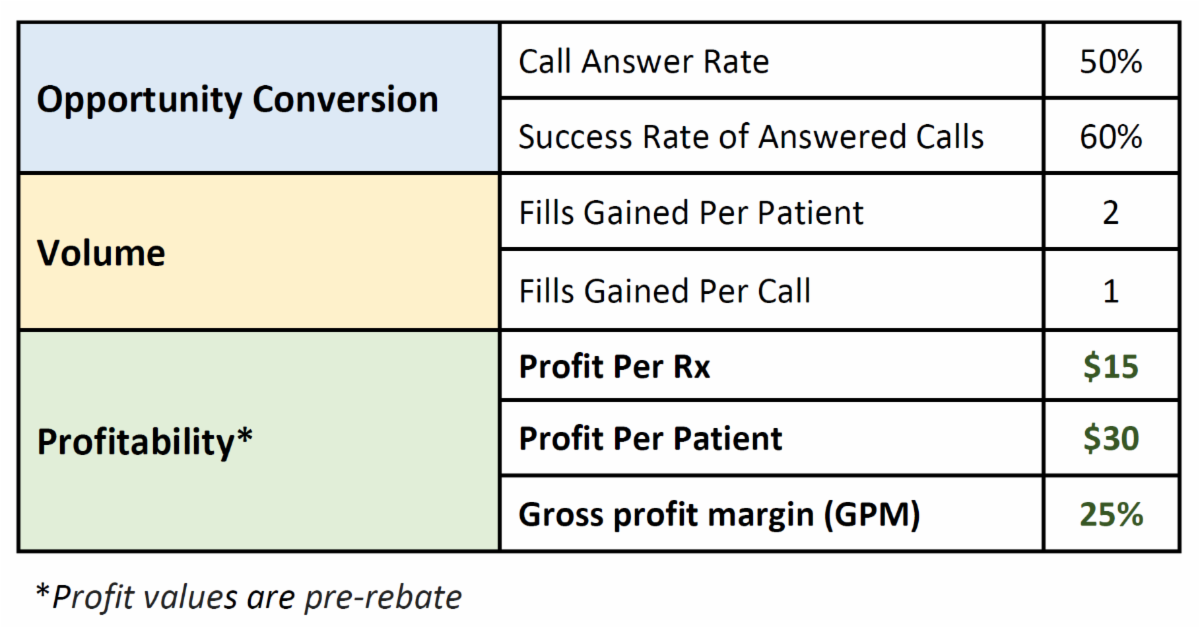After an initial surge in prescription volume at U.S. pharmacies in March, many are experiencing continued drops in volume as the pandemic worsens, unemployment rises and social distancing practices keep many patients shuttered. In addition, many of our members are reporting that one or more of their top prescribers have shut their doors or gone out of business.
During this time of rising unemployment, closing prescriber offices and shrinking patient traffic, it is essential that you take decisive action to increase your prescription volume. If you have a solution in place to manage medication adherence, make sure it is effective and easy to manage. If you are doing automated patient outreach, make sure you pursue all available opportunities with patients and that you monitor your ROI and success rates.

American Pharmacies members enrolled in
RxCompass already have a powerful, proven platform to drive this effort. The RxCompass Refills on Time report, no matter how it's used, is proven to increase Rx volume following personal patient outreach. Additionally, APRx has developed a recommended strategy for members called
Guided Growth, with two primary objectives: optimal efficiency and maximum ROI. Again, Refills on Time-driven patient outreach alone is proven to yield increased Rx volume; however, following the Guided Growth method can also increase Rx volume per patient, per call and per minute of outreach, as well as simultaneously improve profitability, Star Ratings performance, and increase med sync or auto-refill enrollment.
Last but certainly not least, this personal outreach is an effective opportunity to strengthen patient relationships and showcase the value of your pharmacy and its services. This is accomplished by identifying and targeting opportunities across multiple metrics, then prioritizing outreach accordingly. Essentially, the Guided Growth method ensures that the highest value opportunity is pursued with each call, irrespective of the number of calls or outreach hours. Your time is always limited, making it critical that you get the most from every minute you invest in this important effort.
Of course, the proof is in the pudding, as they say: your
end results define the success of your planning and efforts. Since its launch in 2016, 39 APRx member pharmacies have participated in the

Refills on Time initiative, some for more than three years and some for as little as a week.
Following more than 20,000 successful patient interactions, these pharmacies have captured approximately 38,000 fills as a result of this outreach alone. At right is a breakdown of key performance indicators derived from actual member experience.
How RxCompass Offsets Lost Prescribing at One Texas Pharmacy
APRx member Vanessa Recio-Rawls has seen a pronounced drop in the number of prescriptions from doctors in the Mission, Texas, area her pharmacy serves. "Every doctor here is seeing a significant reduction in patient volume, said Recio-Rawls, PIC and managing partner at Richard's Pharmacy in Mission. "And the ones that are still open have cut back their hours."
|
|
 |
|
Vanessa Recio-Rawls, PharmD
|
 |
Recio-Rawls was an early adapter of RxCompass when American Pharmacies launched the program three years ago, and she's become an even bigger fan of the platform during the COVID-19 pandemic.
"We've been able to maintain a decent volume due to our RxCompass reports," she said. "It's an absolute necessity to my pharmacy right now."
Recio-Rawls has a single technician assigned to work through the Refills on Time (ROT) Report each week and make patient outreach calls. The tech spends about 20 hours on the task, she said.
At first, she said, the pharmacy used only the ROT report to guide its outreach, and in the first week picked up about 200 scripts. When the technician started consistently working through the entire ROT report outreach each week, Recio-Rawls added the
Refill Report to guide further patient outreach.
"The Refill Report helps us capture fills now that we won't have to dispense until four or five days out," she said. "That helps us manage our inventory better and keep our stock lower."
Richard's has been operating in closed-door mode the last three weeks and Recio-Rawls said there are both detriments and benefits to the situation:
"We really miss seeing our patients face-to-face" she said. "We really do. But our productivity is up significantly because we have fewer distractions."
That increase in available time has enabled her staff to expand its patient outreach efforts significantly: "We've been able to talk to so many more of our patients, especially the chronically ill ones" she said. "And we've filled many more maintenance prescriptions than we usually do."
Pushing refills out several days by using the Future Fills Report also makes it easier to enroll patients in med sync, she added.